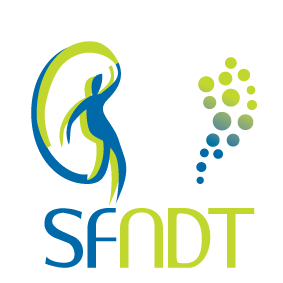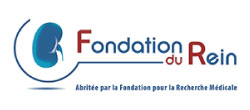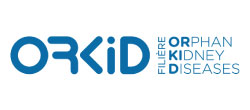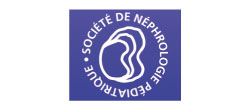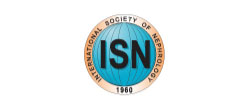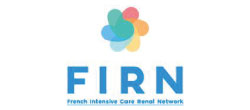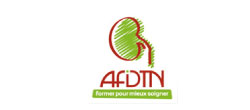Who we are?
SFNDT was created in 2015, resulting from the merger of two societies that pursued the same objectives, the Nephrology Society that existed since the 1960s, and the more recent French-speaking Society of Dialysis. There are more than 1,750 members from French-speaking countries, such as Maghreb countries, sub-Saharan Africa, Belgium, Cambodia, Canada, Lebanon, Luxembourg and Switzerland.
Professor Maryvonne Hourmant and Professor Luc Frimat are the current President and Vice President, respectively.
The list of all council members is available from: https://www.sfndt.org/vie-de-la-societe/conseil-administration.
Our mission
The SNFDT mission is to support the advancement of nephrology in all its areas from clinical nephrology to dialysis and renal transplantation and in all dimensions of health care, fundamental research, epidemiological and clinical advances, and education.
With over a 50-year experience in the field of nephrology, dialysis and transplantation, our society aims at being the privileged interlocutor of the French Health Authorities, French-speaking nephrologists, health professionals and associations of patients.
Our vision
- To ensure the best protection of the nephrologists’ interests.
- To provide guidelines in the medical field as well as on health care organization.
- To support fundamental clinical research in the field of nephrology by investing around 0.5 million of Euros per year through fellowship awards for young nephrologists.
- To advance continuous medical education (CME) and continuous professional development by organizing medical summer schools on dialysis and an annual congress to provide knowledge in all areas of nephrology from clinical nephrology to dialysis and renal transplantation. https://www.sfndt.org/congres/congres-annuels-sfndt
- To support training for young nephrologists by organizing an annual research seminar and remain alert on the progress of the reform on graduate medical education.
- To keep a good relationship with patients’ associations. It is of importance to respect the patient’s desire of autonomy and participation in the medical decision-making process. The patient’s quality of life is still an objective for us.
- To develop health care and educational actions in the French-speaking countries requiring help, such as sub-Saharan Africa, Cambodia, and Maghreb countries.
- To interact with nephrology societies from other French-speaking countries in Europe, Africa, Lebanon and Canada.
- To implement multidisciplinary working groups involving patients on important issues in 2020, first of all on therapeutic non-adherence and on management of socially excluded patients.
- To appoint a referent person for green nephrology at our council as experimental studies have suggested a relationship between pesticide exposure and end-stage renal disease, and as access to water is becoming a worldwide health issue.
Roles of our committees
- The Clinical Nephrology Committee led by Professor Dominique Guerrot (University Hospital, Rouen) is aimed to identify diagnostic and therapeutic advances in kidney diseases and to promote design and implementation of clinical trials. Acting in liaison with the others commissions, special attention will be made to establish collaborations and exchange of experience with other scientific societies.
- The Dialysis Committee led by Professor François Vrtovsnik (Hôpital Bichat-Claude Bernard, Paris) provides clinical practice guidelines for dialysis that are certified by the National Agency for the Development of Medical Evaluation (ANDEM) and published in the French nephrology journal “Néphrologie & Thérapeutique”, promotes and implements Francophone multicentric clinical trials on chronic dialysis, and can provide updated dialysis news and dialysis advices to workshop organizers within the Society of nephrology and at the request of the SFNDT Council. Recently an editorial team was solicited for carrying out in-depth work on chronic kidney disease. The main objective of this work was to develop home dialysis therapy. This team was coordinated by Professor Thierry Lobbedez (University Hospital, Caen) and composed of nephrologists with a hospital, private or mixed practice, but also of patient representatives. This work has drawn up ten major proposals to support the development of home dialysis therapy (“Ma maladie rénale chronique en 2022. 10 propositions pour développer la dialyse à domicile“) and is available from: https://www.sfndt.org/actualites/livre-blanc-de-la-dialyse-domicile
- The Transplant Committee led by Professor Bruno Moulin (University Hospital, Strasbourg) provides clinical practice guidelines for transplant that are certified by the National Agency for the Development of Medical Evaluation (ANDEM) and published in the French nephrology journal “Néphrologie & Thérapeutique”, promotes and implements French-speacking multicentric clinical trials on kidney transplant, and can give transplant advices to workshop organizers and updated news in kidney transplant within the Society of Nephrology.
- The Epidemiology and Public Health Committee led by Professor Olivier Moranne (University Hospital, Nimes) manages the “Renal Epidemiology and information network – REIN” at the national level, organizes the Epidemiology Workshop at the SFNDT annual congress and provides training opportunities on epidemiology for clinicians. Recently Cécile Couchoud et al., in the name of the French REIN registry, carried out a pharmacoepidemiological study to evaluate the association between dialysates based on hydrochloric and on citric acid and overall mortality among hemodialysis patients.
- The Scientific Committee led by Professor Fatouma Touré (University Hospital, Limoges) sets up the program of the SFNDT annual congress in collaboration with the local committee, leads a meeting on recent advances in nephrology within the SFNDT annual congress, is a contributing writer for the “Research Alerts” (i.e.“Echos de la Recherche”) published in “Néphrologie & Thérapeutique”, submits a short-list of applicants for scholarship, research grants and awards to the Board in light of the thorough review of submissions, promotes multicentric clinical trials and draws up best clinical practice guidelines in the field of clinical nephrology.
- The Education and Continuous Medical Education Committee led by Professor Luc Frimat (CHRU, Nancy) draws up an inventory of nephrologists’ needs in continuing medical education (CME), suggests a CME program and leads a CME workshop at the SFNDT annual congress, thinks about an educational continuum in internal medicine for nephrologists, suggests labeling rules for CME meetings by SFNDT, draws up best practice guidelines in the field of CME and is the representative for SFNDT within the French Society of Continuing Education in Nephrology.
- The Ethic Committee led by Dr Bruno Dallaporta (Centre Médical et Pédagogique Edouard Rist, Paris) initiates and develops thinking on ethic issues in nephrology practice, in particular for individual situations, contributes to validating information for patients with kidney disease, and participates in all debates related to ethic issues likely to have an impact on nephrology practice.
- The Solidarity Nephrology Committee led by Dr Quentin Meulders (Henri Duffaut Hospital, Avignon) collaborates with ISN-RDRTF for renal care in humanitarian catastrophes, assesses needs for education and supports in nephrology to be given in sub-Saharian Africa and other non-European Union Francophone countries.
- The Website & communications Committee led by Professor Marc Hassan (CHRU, Lille) will set up a new website in according to the new internet specifications, provides tools to help committees, and manages the flow of information via internet and social networks.
Continuing medical education (CME)
CME is essential for patient care management in accordance with the evolution of guidelines. It is an obligation for the nephrologist and is part of an ongoing process. Its criteria are validated by the HAS and are available from: https://www.has-sante.fr/portail/jcms/c_1288556/fr/developpement-professionnel-continu-dpc.
The role of APFCN is the implementation of CME in Nephrology in various supports such as e-learning courses, medical summer courses, and education events during the annual SFNDT congress to provide the greatest possible access to nephrologists.
APFCN is chaired by Professor Luc Frimat (CHRU, Nancy).
In public health, each health professional must justify having a CME commitment including continuing training and evaluation of his/her medical practices over a 3-year period.
The following topics have been implemented:
- ‘Glomerulonephritis’ led by professor Jean-Jacques Boffa (Hôpital Tenon, Paris) and Professor Dominique Guerrot (University Hospital, Rouen)
- ‘Hydroelectolytic disorders’ led by Dr Lucile Figueres (University Hospital, Nantes), Dr Sandrine Lemoine (University Hospital, Lyon), Professor Bruno Moulin (University Hospital, Strasbourg)
- ‘Kidney transplantation’ (via analysis of clinical cases to emphasize the clinical practice) led by Professor Luc Frimat (University Hospital, Nancy) and Dr Catherine Mourey-Epron (Hôpital du Léman, Thonon-les-Bains)
- ‘Improvement courses in dialysis’ led by Professor Fatouma Touré (University Hospital, Limoges), Professor François Vrtovsnik (Hôpital Bichat-Claude Bernard, Paris), Dr Christophe Ridel (Hôpital Tenon, Paris) et Dr Antoine Lanot (University Hospital, Caen).

Our journal: Néphrologie & Thérapeutique
The role of our journal is to publish articles, usually in French, in the field of Nephrology, including updated knowledge, good clinical practice guidelines, and original papers, or information on the two founding societies.
https://www.em-consulte.com/revue/NEPHRO/presentation/nephrologie-therapeutique
Registries
REIN registry: the French Renal Epidemiology and Information Network registry
The French Renal Epidemiology and Information Network (REIN) registry started in 2002 with the goal to provide a tool for evaluating renal replacement therapy (RRT) practices and outcomes, to provide data for research and to support public health decisions related to end‐stage renal disease.
https://www.sfndt.org/partenaires/registres/rein
RDPLF: French Language Peritoneal Dialysis and Home Hemodialysis registry
RDPLF is a non-profit association which was created in 1998. At its creation RDPLF was set up to assist physicians and nurses in evaluating their practical experience and results regarding peritoneal dialysis. Since 2013 a new module related to all home hemodialysis (HHD) methods has been incorporated in the RDPLF database. As a result, RDPLF is now the home dialysis registry including peritoneal dialysis and HHD. However about 30% of HHD are currently included in the registry unlike 98% of peritoneal dialysis.
